
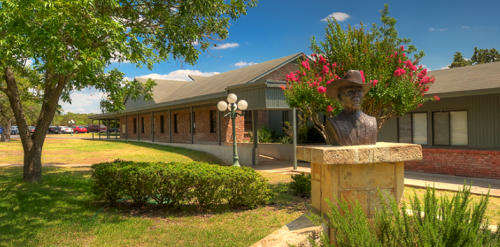
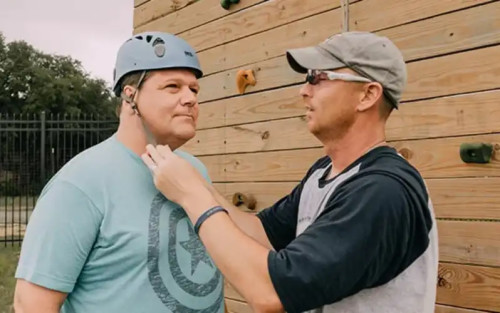
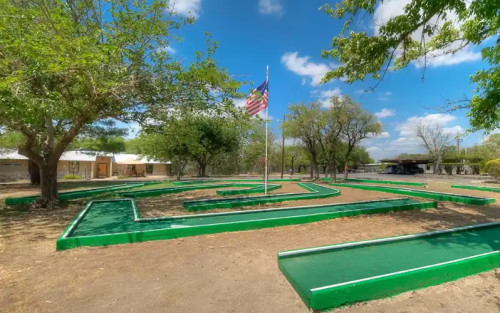
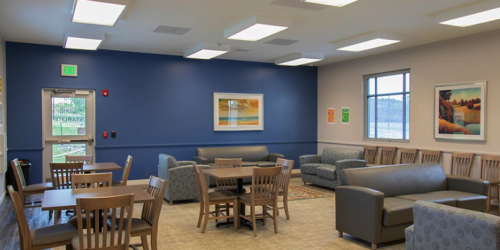




Starlite Recovery Center
Verified Center
This provider's information has been quality-checked by Recovery.com's Research Team for accuracy and completeness, including center verification through appropriate third-party organizations.
Treatment Focus
This center treats substance use disorders and co-occurring mental health conditions. Your treatment plan addresses each condition at once with personalized, compassionate care for comprehensive healing.
Primary Level of Care
Offering intensive care with 24/7 monitoring, residential treatment is typically 30 days and can cover multiple levels of care. Length can range from 14 to 90 days typically.
Treatment Focus
This center treats substance use disorders and co-occurring mental health conditions. Your treatment plan addresses each condition at once with personalized, compassionate care for comprehensive healing.
Primary Level of Care
Offering intensive care with 24/7 monitoring, residential treatment is typically 30 days and can cover multiple levels of care. Length can range from 14 to 90 days typically.
Provider's Policy
Please call our admissions team for more information on insurance coverage. A knowledgeable member of our team can answer any financial questions you might have, and they can also reach out directly to your insurance carrier to verify and maximize your benefits. This service is free and puts you under no obligation to choose our programming.
Starlite Recovery Center
Starlite Recovery Center
About Starlite Recovery Center
Starlite Recovery Center has been helping clients since 1957. They offer detox, residential care, an intensive outpatient program (IOP), and telehealth services. Starlight Recovery uses evidence-based practices to help each client recover from addiction and co-occurring mental health conditions. Along with addiction, they treat anxiety, depression, bipolar disorder, trauma, and post-traumatic stress disorder (PTSD). Starlite Recovery Center helps families heal too, with weekly family therapy sessions and educational groups.
Comprehensive And Evidence-Based Treatment
Starlite Recovery Center supervises detox 24/7 with nursing staff and daily visits from their on-site physician. They provide medication-assisted treatment (MAT) as needed or desired. Clients have a 1:1 therapy session each week and daily group therapy. They provide 12-Step “Big Book” study, Seeking Safety treatment, Refuge Recovery, and SMART (Self-Management and Recovery Training) recovery. Starlite’s evidence-based therapies include cognitive behavioral therapy (CBT), dialectical behavioral therapy (DBT), trauma-focused CBT, equine-assisted treatment (EAT) and eye-movement therapy (EMDR).
Specialized Care Tracks
Starlite Recovery provides specialized treatment tracks for Veterans, First Responders, Christians, and LGBTQ clients. Each track focuses on the nuanced needs of each group, offering a culturally competent and compassionate space for each member. Starlite Recovery Center also offers family care for clients’ loved ones. Along with weekly family therapy, families can also attend a 2-day program to learn more about addiction, relapse, communication, codependency, and setting healthy boundaries.
Healing The Mind And Body
Clients at Starlite Recovery Center can enjoy a variety of wellness activities and adventure therapies. They offer yoga, acupuncture, and personal training. Starlite has a ropes course and climbing wall, and a mini golf course. Clients can walk their 55-acre property too, with trails throughout.

Highlights from the Center
Highlights
These highlights are provided by and paid for by the center.
Equine Therapy
On-site Medical Detox
Trauma-Informed Care
12-Step Approach
Center Overview
Treatment Focus
This center treats substance use disorders and co-occurring mental health conditions. Your treatment plan addresses each condition at once with personalized, compassionate care for comprehensive healing.
CARF Accredited
CARF stands for the Commission on Accreditation of Rehabilitation Facilities. It's an independent, non-profit organization that provides accreditation services for a variety of healthcare services. To be accredited means that the program meets their standards for quality, effectiveness, and person-centered care.

Starlite Recovery Center
Insurance Accepted
Cash Pay Rates
Estimated Cash Pay Rate
Center pricing can vary based on program and length of stay. Contact the center for more information. Recovery.com strives for price transparency so you can make an informed decision.
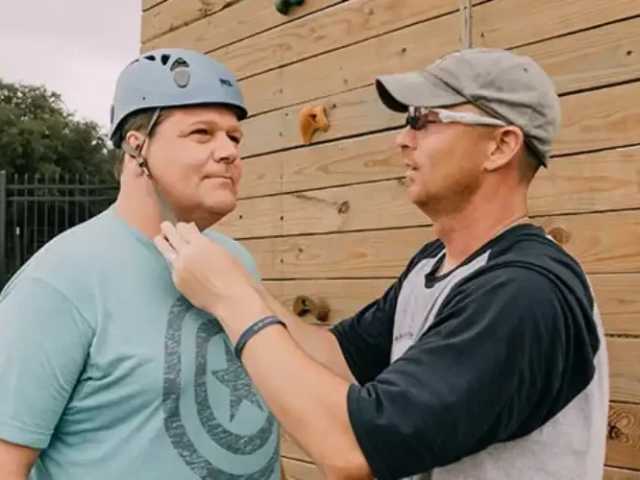
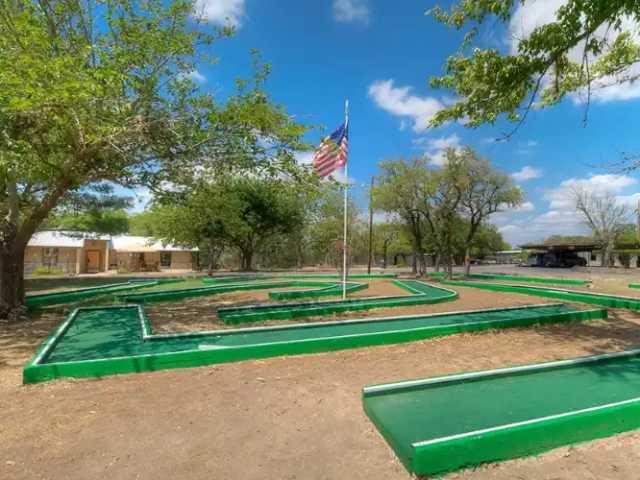


Recovery.com Verified Listing
Recovery.com verified that the name, location, contact information and license to operate for this treatment provider are valid and up-to-date.

Licensed by Texas HHS

NAATP Member
Recovery.com is an independent, third-party mental health resource. Verification does not imply endorsement and does not guarantee the quality of treatment services.
Meet Your Care Team
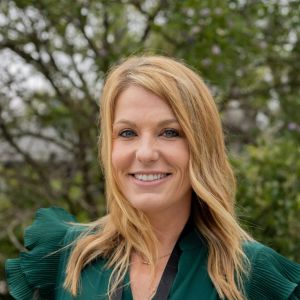
Stephanie Evan
Chief Executive Officer
BSN, RN
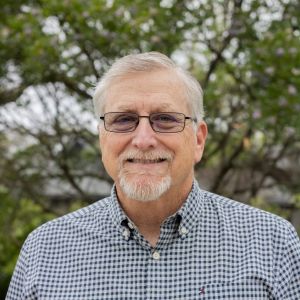
Randy Morton
Chief Financial Officer
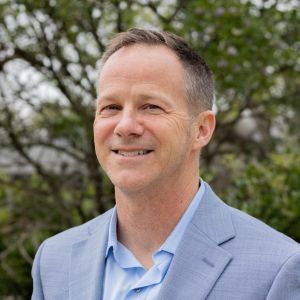
Bryan M. Davis
Medical Director
D.O., MSPH, DABFM, DABPM, FASAM

Jessica Cayce
Psychiatrist
MD

Sunny Monroe
Mental Health Nurse Practitioner
PMHNP-BC/APRN
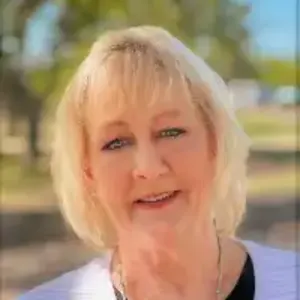
Laurie Stevens-Beck
Director of Clinical Services
LPC-S, EMDR-C, CCTP
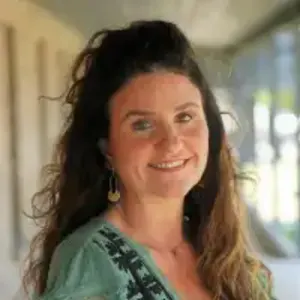
Michelle Mauze
Director of Outpatient Services
LMSW, LCDC, C-DBT

Cassandra "Cece" Carson
Admissions Director
LVN
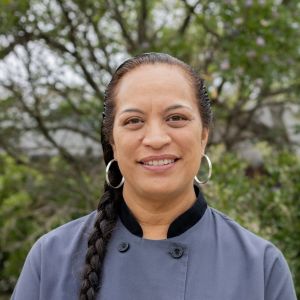
Joy Wahrmund
Director of Dietary Services
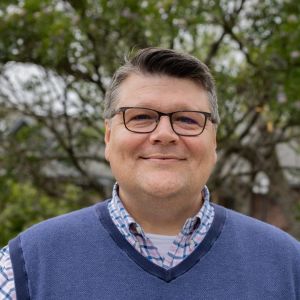
Brian Brannan
Director of Alumni Services and Continuing Care

Toni Bourgeois
Human Resources Director
SHRM-CP
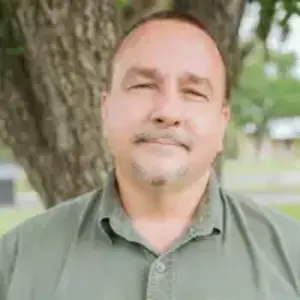
Paul Johns
Director of Plant Operations
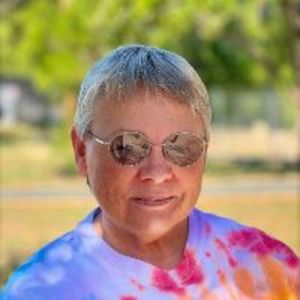
Robbin Lynch
Lead Counselor - Liberty Program
MS, LCDC
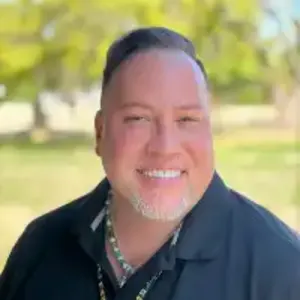
Cel Zepeda
Freedom Program Lead Counselor
LCDC-Intern

Stephanie Green
Director of Risk Management and Patient Advocate
BA
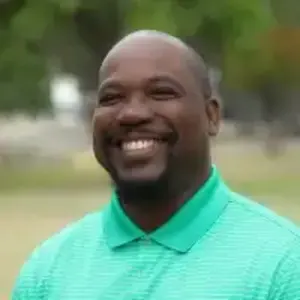
Clarence Stewart
Activity Therapy Manager
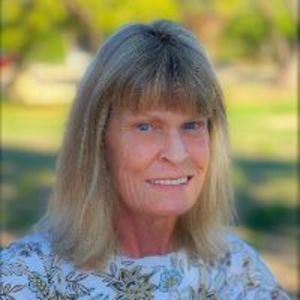
Sharon VanOverborg
Business Office Director
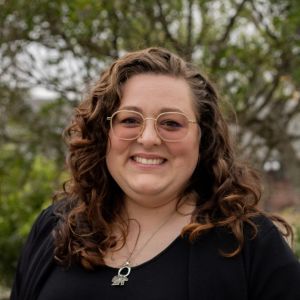
Leah Clayton
Utilization Review Manager

Roy Perez
Business Development Representative
LCDC-I
Your Care Options
Specializations
Alcohol
Using alcohol as a coping mechanism, or drinking excessively throughout the week, signals an alcohol use disorder.
Co-Occurring Disorders
A person with multiple mental health diagnoses, such as addiction and depression, has co-occurring disorders also called dual diagnosis.
Drug Addiction
Drug addiction is the excessive and repetitive use of substances, despite harmful consequences to a person's life, health, and relationships.
Equine Therapy
Guided interactions with trained horses, their handler, and a therapist can help patients improve their self-esteem, trust, empathy, and social skills.
Christian
Through surrender and commitment to Christ, patients refocus the efforts and source of their recovery with clinical and spiritual care.
LGBTQ+
Addiction and mental illnesses in the LGBTQ+ community must be treated with an affirming, safe, and relevant approach, which many centers provide.
Veterans
Patients who completed active military duty receive specialized treatment focused on trauma, grief, loss, and finding a new work-life balance.
Residential
In a residential rehab program, patients live onsite, with access to daily treatment and 24-hour care. An average stay is 30-90 days.
Who We Treat
Young Adults
Emerging adults ages 18-25 receive treatment catered to the unique challenges of early adulthood, like college, risky behaviors, and vocational struggles.
LGBTQ+
Addiction and mental illnesses in the LGBTQ+ community must be treated with an affirming, safe, and relevant approach, which many centers provide.
Men and Women
Men and women attend treatment for addiction in a co-ed setting, going to therapy groups together to share experiences, struggles, and successes.
Professionals
Busy, high-ranking professionals get the personalized treatment they need with greater accommodations for work, privacy, and outside communication.
Veterans
Patients who completed active military duty receive specialized treatment focused on trauma, grief, loss, and finding a new work-life balance.
Treatment Services
Day Treatment
In a PHP, patients live at home but follow an intensive schedule of treatment. Most programs require you to be on-site for about 40 hours per week.
Detox
Detox fully and safely removes toxic substances from the body, allowing the next steps in treatment to begin with a clean slate.
Intensive Outpatient Program
In an IOP, patients live at home or a sober living, but attend treatment typically 9-15 hours a week. Most programs include talk therapy, support groups, and other methods.
Outpatient
During outpatient rehab, patients attend a structured treatment program while continuing to live at home.
Residential
In a residential rehab program, patients live onsite, with access to daily treatment and 24-hour care. An average stay is 30-90 days.
Approaches
Evidence-Based
A combination of scientifically rooted therapies and treatments make up evidence-based care, defined by their measured and proven results.
Experiential
Expressive tools and therapies help patients process past situations, learn more about themselves, and find healing through action.
Holistic
A non-medicinal, wellness-focused approach that aims to align the mind, body, and spirit for deep and lasting healing.
Christian
Through surrender and commitment to Christ, patients refocus the efforts and source of their recovery with clinical and spiritual care.
Twelve Step
Incorporating spirituality, community, and responsibility, 12-Step philosophies prioritize the guidance of a Higher Power and a continuation of 12-Step practices.
Therapies
1-on-1 Counseling
Patient and therapist meet 1-on-1 to work through difficult emotions and behavioral challenges in a personal, private setting.
Rational Emotive Behavior Therapy
A type of cognitive therapy that identifies negative self-defeating thoughts and behaviors, rewriting beliefs to be positive, empowering, and present.
Equine Therapy
Guided interactions with trained horses, their handler, and a therapist can help patients improve their self-esteem, trust, empathy, and social skills.
Experiential Therapy
With this approach, patients heal by doing. Therapists help patients process difficult emotions to speak, using guided activities like art or dance.
Eye Movement Therapy (EMDR)
Lateral, guided eye movements help reduce the emotional reactions of retelling and reprocessing trauma, allowing intense feelings to dissipate.
Family Therapy
Family therapy addresses group dynamics within a family system, with a focus on improving communication and interrupting unhealthy relationship patterns.
Life Skills
Teaching life skills like cooking, cleaning, clear communication, and even basic math provides a strong foundation for continued recovery.
Conditions We Treat
Anxiety
Anxiety is a common mental health condition that can include excessive worry, panic attacks, physical tension, and increased blood pressure.
Bipolar
This mental health condition is characterized by extreme mood swings between depression, mania, and remission.
Depression
Symptoms of depression may include fatigue, a sense of numbness, and loss of interest in activities. This condition can range from mild to severe.
Post Traumatic Stress Disorder
PTSD is a long-term mental health issue caused by a disturbing event or events. Symptoms include anxiety, dissociation, flashbacks, and intrusive thoughts.
Trauma
Some traumatic events are so disturbing that they cause long-term mental health problems. Those ongoing issues can also be referred to as "trauma."
Substances We Treat
Alcohol
Using alcohol as a coping mechanism, or drinking excessively throughout the week, signals an alcohol use disorder.
Benzodiazepines
Benzodiazepines are prescribed to treat anxiety and sleep issues. They are highly habit forming, and their abuse can cause mood changes and poor judgement.
Co-Occurring Disorders
A person with multiple mental health diagnoses, such as addiction and depression, has co-occurring disorders also called dual diagnosis.
Cocaine
Cocaine is a stimulant with euphoric effects. Agitation, muscle ticks, psychosis, and heart issues are common symptoms of cocaine abuse.
Drug Addiction
Drug addiction is the excessive and repetitive use of substances, despite harmful consequences to a person's life, health, and relationships.
Heroin
Heroin is a highly addictive and illegal opioid. It can cause insomnia, collapsed veins, heart issues, and additional mental health issues.
Methamphetamine
Methamphetamine, or meth, increases energy, agitation, and paranoia. Long-term use can result in severe physical and mental health issues.
Opioids
Opioids produce pain-relief and euphoria, which can lead to addiction. This class of drugs includes prescribed medication and the illegal drug heroin.
Languages
Aftercare
Care Designed for Your Needs
Personal Amenities
Amenities
Special Considerations
LGBTQ group
Group therapy unites LGBTQ+ patients in a safe and culturally competent setting, encouraging peer support under the expert leadership of a therapist.
Religion-Based Track
Patients can join faith-based recovery tracks to approach recovery with others in their faith, healing in a like-minded group with similar goals.
First Responders Program
Paramedics, police officers, firefighters, and others join in a specific First Responders program, usually focused on trauma, grief, and work-life balance.
Activities
Yoga
Yoga is both a physical and spiritual practice. It includes a flow of movement, breathing techniques, and meditation.

Learn More About the Center
Starlite Recovery Awarded Platinum Status
Optum awarded Starlite Recovery Center Platinum Status, the highest award, for their substance use treatment.
Take a Photo Tour
See more of Starlite Recovery Center’s center and their outdoor activities.
The Staff at Starlite Recovery Center
Learn more about the staff at Starlite and their qualifications.
Admissions Overview
Read about the admission process at Starlite Recovery Center, and what to bring to treatment.
What people are saying
Treatment
4.1
Accommodations
3.9
Food & Nutrition
4.2
Value
4.1
Vee
Reviewed 08/03/23
Review from Rehabs.com
Jack
Reviewed 12/24/22
Review from Rehabs.com
Michael
Reviewed 10/04/22
Review from Rehabs.com
Mike McCurley
Reviewed 08/02/22
Review from Rehabs.com
Carla
Reviewed 01/31/21
Review from Rehabs.com





